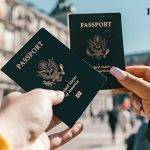How To Apply For Healthcare Jobs In The U.S. as a Foreign Nurse
Navigating the multi-step process to become a nurse in the U.S. as a foreign nurse can be a daunting task to do especially when you are new to this or don’t know exactly what to do or what is needed. Despite the challenging steps, it is ultimately a professionally rewarding transition to make for many obvious reasons. My goal with this guide is to put your through the steps and processes to become a qualified to apply for healthcare jobs in the U.S. as a foreign nurse. At the end of this article, you should be equipped with all the necessary information you need to navigate the process.
1. Understand the Basic Requirements
The first step in applying for healthcare jobs in the U.S. is understanding the requirements you need to meet to work as a nurse. Unlike some professions, nursing in the U.S. is heavily regulated, meaning you’ll need to ensure you have the proper credentials to practice. Here’s a quick overview of what you’ll need:
- Valid Nursing Degree: You should have a valid degree from an accredited nursing school in your home country. The U.S. requires foreign nurses to have a degree equivalent to a U.S. Associate’s or Bachelor’s degree in nursing.
- English Language Proficiency: If you’re from a non-English speaking country, you’ll need to demonstrate proficiency in English. Most U.S. employers and nursing boards require passing scores on exams like the TOEFL (Test of English as a Foreign Language) or IELTS (International English Language Testing System).
- NCLEX-RN Exam: All practicing nurses in the U.S. must pass the NCLEX-RN (National Council Licensure Examination for Registered Nurses). This test ensures that you meet the minimum competency level to practice as a registered nurse.
- Visa Requirements: You’ll also need the appropriate visa to work legally in the U.S. as a nurse. More on this later!
2. Credential Evaluation
To practice nursing in the U.S., you’ll need to have your foreign education credentials evaluated by a U.S.-based organization. These organizations ensure that your foreign nursing degree is equivalent to U.S. standards.
- Choose a Credential Evaluation Service: One commonly accepted credentialing service is the Commission on Graduates of Foreign Nursing Schools (CGFNS). This service evaluates your transcripts and credentials, verifying that your nursing education meets U.S. standards.
- Submit Your Documents: You’ll need to submit various documents to the credentialing service, including your nursing school transcripts, proof of licensure in your home country, and sometimes employment records.
- Complete CGFNS Certification Program (Optional but Recommended): CGFNS offers a certification program specifically for foreign nurses. Although not mandatory for all U.S. states, completing the CGFNS Certification Program can make it easier to obtain a nursing license in some states.
3. Apply for State Licensure
Nursing in the U.S. is regulated at the state level, meaning you’ll need to apply for licensure in the specific state where you want to work. Each state has its own requirements, so you’ll need to check with the Board of Nursing (BON) in the state you’re interested in.
Here’s how to apply for state licensure:
- Submit an Application: Visit the state’s Board of Nursing website to start the licensure process. You’ll need to fill out an application, pay a fee, and submit your credential evaluation report.
- Register for the NCLEX-RN Exam: Once your application is approved, the state will issue you an authorization to test (ATT) for the NCLEX-RN exam.
- Schedule and Take the NCLEX-RN Exam: The NCLEX is a computerized test that assesses your ability to provide safe and effective nursing care. It’s crucial to prepare thoroughly using NCLEX prep courses, practice exams, and study guides.
- Receive Your License: If you pass the NCLEX, the state will issue your nursing license, allowing you to practice as an RN in that state.
4. Obtain a Work Visa
Now that you’ve completed your educational and licensure requirements, it’s time to focus on immigration. There are several visa options available for foreign nurses, but two are the most common:
H-1B Visa
The H-1B visa is a temporary work visa for professionals in specialized fields, including healthcare. To qualify for an H-1B as a nurse, you’ll need to meet a few criteria:
- A job offer from a U.S. healthcare employer
- A nursing degree equivalent to a U.S. bachelor’s degree
- Proof that the nursing job requires a bachelor’s degree-level education
However, the H-1B visa has an annual cap, which means you’ll be competing with applicants from other fields.
EB-3 Visa
The EB-3 visa is a more common option for nurses. It’s a permanent residency visa for skilled workers, and nurses often fall under this category. To apply for an EB-3 visa:
- You must have an offer from a U.S. healthcare employer.
- The employer must sponsor you and file a PERM labor certification with the U.S. Department of Labor to prove that they couldn’t find a qualified U.S. worker for the job.
- After your labor certification is approved, your employer will file an I-140 petition on your behalf.
Once your I-140 petition is approved, you can apply for a green card, allowing you to work as a nurse in the U.S. permanently.
5. Job Search Tips
Once you’ve obtained your license and visa, it’s time to start your job search! Here are a few tips to help you land a job:
- Leverage Online Job Boards: Websites like Indeed, Glassdoor, and Nurse.com are great places to find healthcare job listings in the U.S. Many hospitals and healthcare organizations also post jobs directly on their websites.
- Reach Out to Staffing Agencies: Staffing agencies specialize in placing nurses in healthcare facilities. Some agencies, such as O’Grady Peyton International or Avant Healthcare, even help foreign nurses with visa sponsorship.
- Tailor Your Resume: Make sure your resume highlights your nursing education, work experience, and any specialized skills you’ve gained. U.S. employers often appreciate nurses with multilingual abilities or international experience.
- Network: Join nursing associations like the American Nurses Association (ANA) or attend healthcare conferences to expand your professional network.
6. Prepare for Job Interviews
Once you land a job interview, it’s essential to be well-prepared. Here’s how:
- Research the Hospital or Organization: Understand the mission, values, and services of the healthcare facility where you’re applying. Employers appreciate candidates who demonstrate a genuine interest in their organization.
- Be Ready to Discuss Your International Experience: Be prepared to explain how your nursing experience abroad has equipped you to succeed in the U.S. healthcare system.
- Practice Common Interview Questions: Common questions might include how you handle stress, your experience with electronic health records, or how you manage patient care in high-pressure situations.
7. Adjusting to Life as a Nurse in the U.S.
Once you start working as a nurse in the U.S., there will be an adjustment period. Here are some tips to help you transition:
- Familiarize Yourself with U.S. Healthcare Standards: The U.S. healthcare system has its own regulations and standards. You’ll need to stay up-to-date with continuing education and state licensing requirements.
- Cultural Adaptation: Working with patients from diverse backgrounds is common in U.S. hospitals. It’s helpful to understand the cultural differences you may encounter and how they could impact patient care.
Even though it may seem difficult or challenging to do, it is both achievable and fulfilling to not only apply but also land a healthcare role in the U.S. as a foreign nurse. From credential evaluations to passing the NCLEX, obtaining licensure, and securing a work visa, each step brings you closer to realizing your dream of working in the U.S. healthcare system. The guide above was written to simplify the process for you and get you ready.



